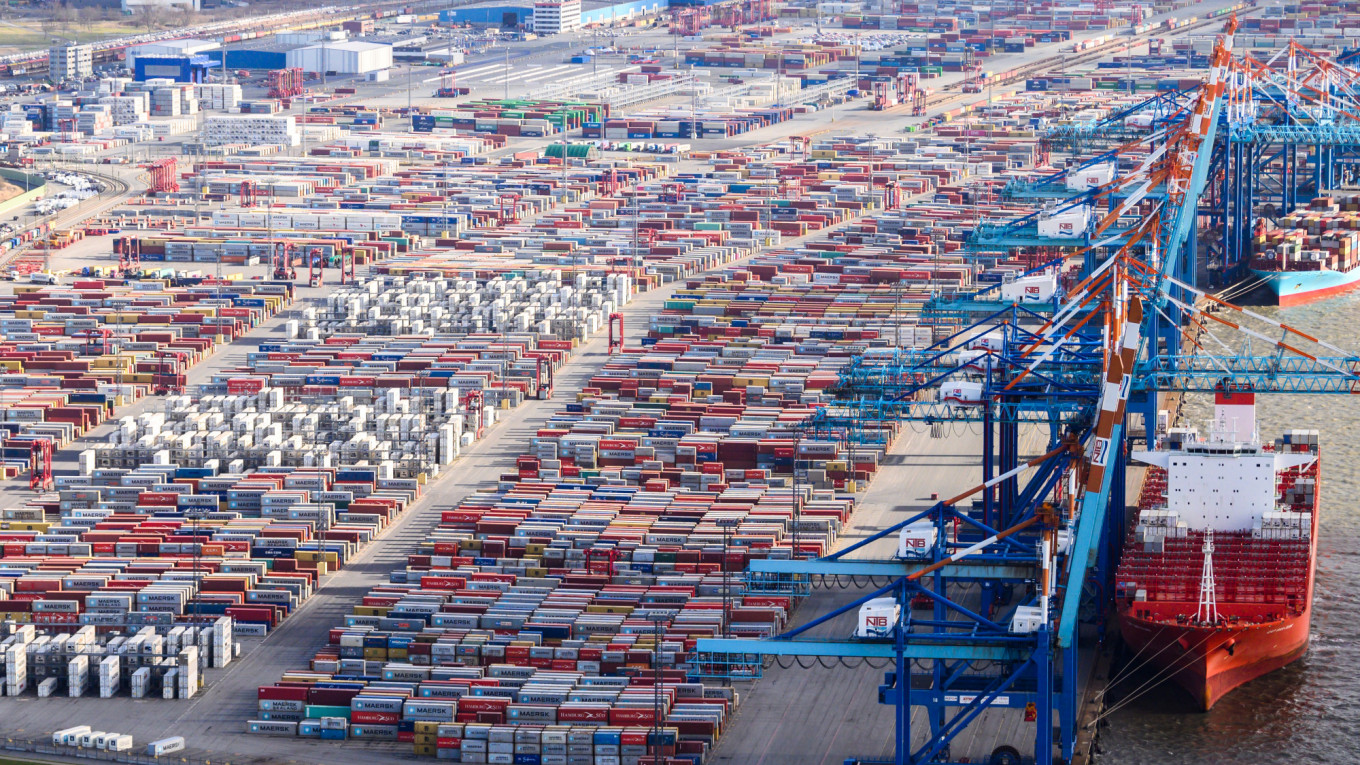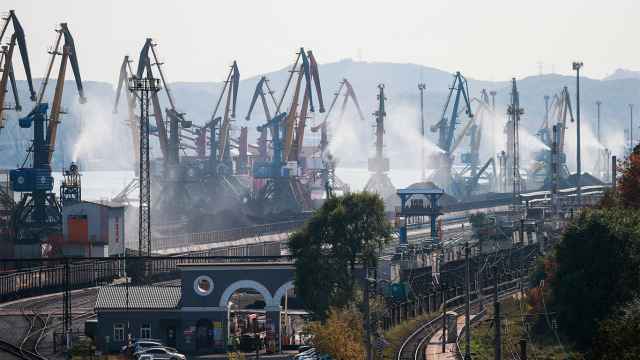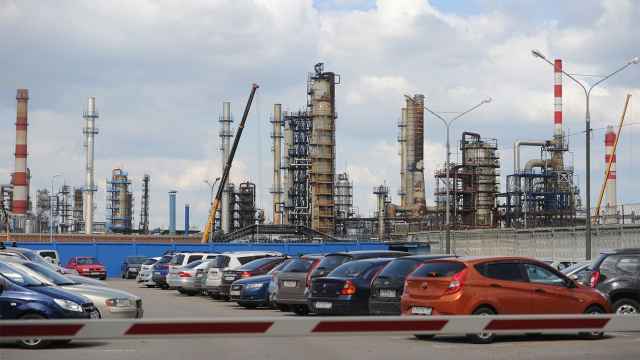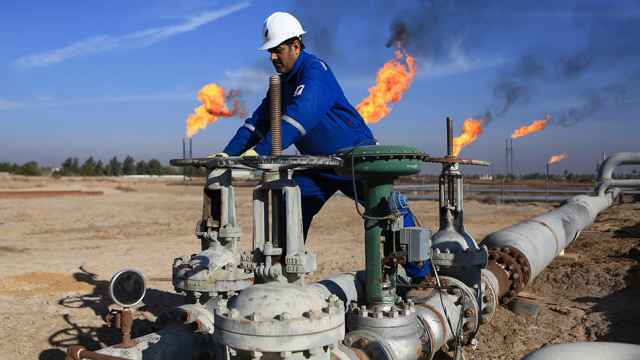Russian exports of key commodities collapsed in March as economic sanctions tied to Moscow's war in Ukraine began to take hold.
Month-to-month fertilizer shipments saw the biggest decline with a drop of 35 percent, according to data from the Association of Russian Seaports. Fertilizer exports fell to 1.1 million tons in March, compared with 1.7 million tons in February 2022.
Iron ore exports also plummeted by 30 percent to 700,000 tons, while shipments of ferrous products fell 27 percent to 1.9 million tons.
Grain shipments tumbled to 2.4 million tons, a 14 percent decrease from February.
Analysts linked falling fertilizer and metals exports with EU sanctions imposed on Moscow following Russia’s invasion of Ukraine on Feb. 24, but said that most long-term export contracts remained stable.
The European Union says it is now working to launch new embargoes on Russian oil and gas, although officials confirmed last week such measures would take "several months." The bloc currently imports around 45 percent of its gas from Russia.
For the moment, Russia's energy exports remain steady, with some areas even reporting increases last month.
Russia’s seaborne oil flows climbed 10 percent to 21.4 million tons in March, a 1.9-million-ton increase from February.
Liquefied natural gas exports also saw a 10 percent increase to 3.4 million tons.
And although coal exports dipped 1 percent to 14.4 million tons, Russia ramped up shipments to China by 27 percent. Year-on-year, Russian coal exports to China surged threefold to 1.4 million tons in March 2022.
Alfa Bank chief economist Natalia Orlova has estimated declining exports and discounted prices in Russia's pivot to non-western markets will cost the Russian economy $15 billion in monthly revenues.
AFP contributed reporting.
A Message from The Moscow Times:
Dear readers,
We are facing unprecedented challenges. Russia's Prosecutor General's Office has designated The Moscow Times as an "undesirable" organization, criminalizing our work and putting our staff at risk of prosecution. This follows our earlier unjust labeling as a "foreign agent."
These actions are direct attempts to silence independent journalism in Russia. The authorities claim our work "discredits the decisions of the Russian leadership." We see things differently: we strive to provide accurate, unbiased reporting on Russia.
We, the journalists of The Moscow Times, refuse to be silenced. But to continue our work, we need your help.
Your support, no matter how small, makes a world of difference. If you can, please support us monthly starting from just $2. It's quick to set up, and every contribution makes a significant impact.
By supporting The Moscow Times, you're defending open, independent journalism in the face of repression. Thank you for standing with us.
Remind me later.






